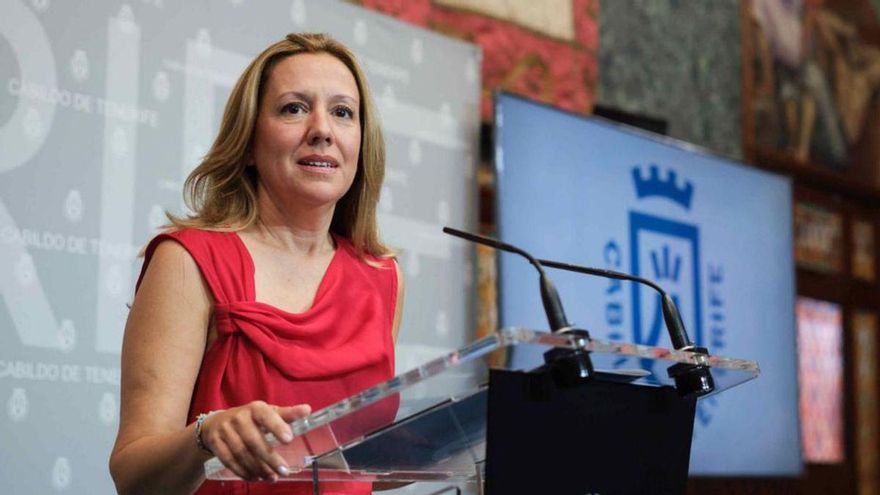
The president of the Cabildo of Tenerife, Rosa Dávila, announced yesterday that the works to extend tram line 2 to Muñeco de Nieve, in La Gallega, will begin next year. In the Conecta program Canary Islands, broadcast by Televisión Canaria, stressed that guided means (train and tram) “are the long-term solution” to these problems. In that line, explained that the island Government “is going to relaunch” rail transport projects, “completely paralyzed” during the previous mandate under the presidency of the socialist Pedro Martin.
In this regard, Dávila stressed that the agreement reached by the PSOE and CC, so that the nationalist deputy Cristina Valido vote for the investiture of Pedro Sanchez“it can give us the possibility of having rail transport and, furthermore, for the State to assume it.”
Since April 2016, Metrotenerife has been presenting a Study of route alternatives for the expansion of Line 2. The planned route was 2.5 kilometers and included four stops starting from Tíncer, the current destination of the route. They would be located in the Snowman, The Sobradillo, Big Ravine and La Gallega. The controversy raised by the six proposed alternatives has led, after seven years, to the idea currently being talked about establishing a route of just 600 meters in length.
The extension of Tram Line 1 to the Tenerife North Airport and Line 2 to La Gallega, as well as the development of the Southern Train from Santa Cruz to Adeje (and its extension to Fonsalía, in Guía de Isora) and the Train of the North, to Los Realejos (and its extension towards Icod de los Vinos) are essential measures included among the 17 alternatives or projects included in the first phase of the Island Plan for Sustainable Mobility of the Island of Tenerife (Pimsit). This document was presented last month by Rosa Dávila and Lope Afonso, president and vice president of the Tenerife Council.
Rosa Dávila alluded to the fact that the Tenerife Cabildo has reached an agreement with the Hotel and Non-Hotel Association of Santa Cruz de Tenerife (Ashotel) through which collective transportation will be implemented that will benefit workers from a dozen hotels in the south of the Island.
In the same television program, the president of the Cabildo of Tenerife has once again demanded for the Canary Islands a permanent base of “high capacity” aerial means for the fight against fires.
















